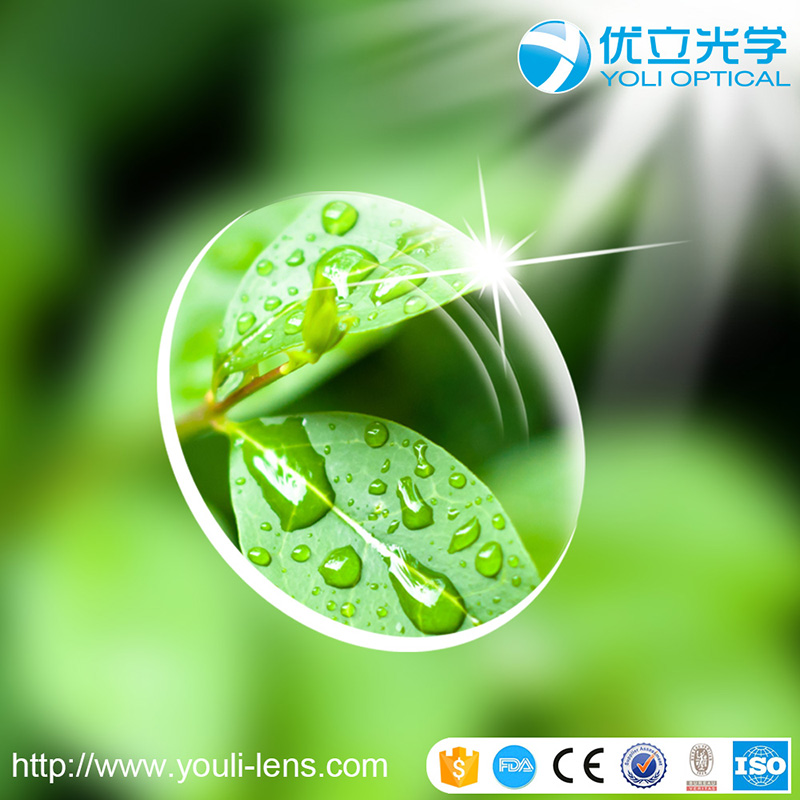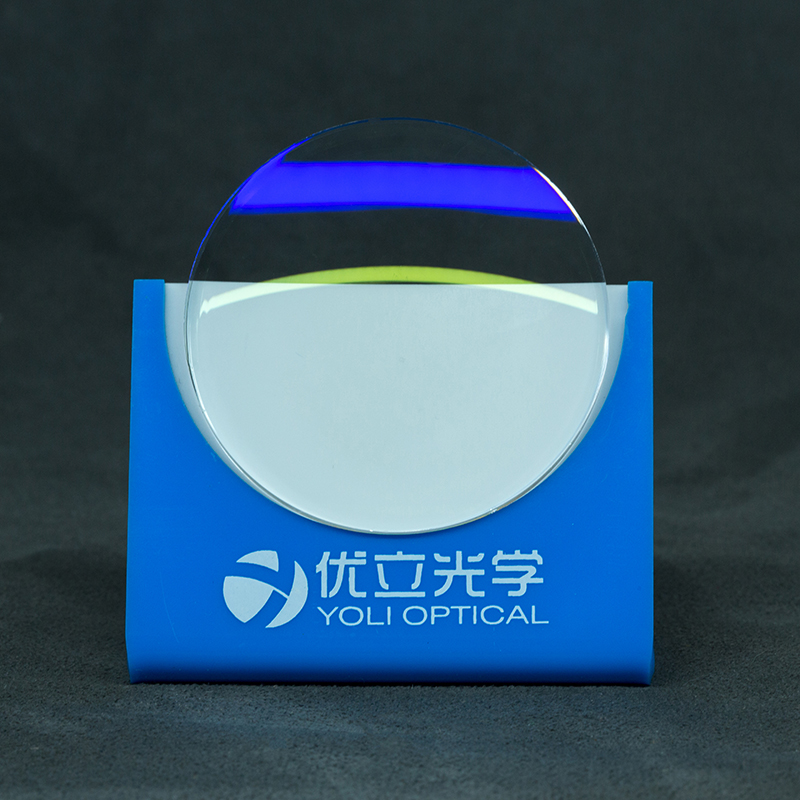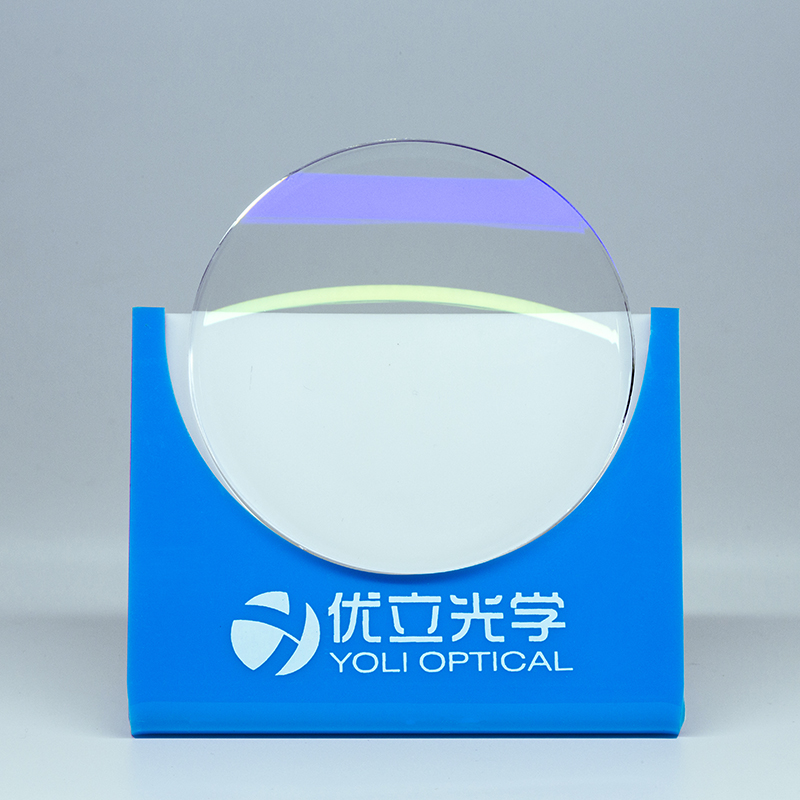
China 1.56 Photochromic Blue Cut Lens Companies – Photochromic Bifocal Lens – YOLI
China 1.56 Photochromic Blue Cut Lens Companies – Photochromic Bifocal Lens – YOLI Detail:
Presbyopia
When people aging 40 or so, our eyes become less flexible. It becomes difficult for us to adjust between distant objects and close objects, as in between driving and reading tasks. And this eye problem is called presbyopia.
Photochromic Bifocal Lens
Single vision lenses are used to sharpen your focus for either nearby or faraway images. However, they cannot be used to sharpen your vision for both. Bifocal lenses enhance your vision for both nearby and faraway images.
Bifocal lenses consists of two prescriptions. A small portion in the lower part of the lens contains the power to correct your near vision. The rest of the lens usually is for your distance vision.
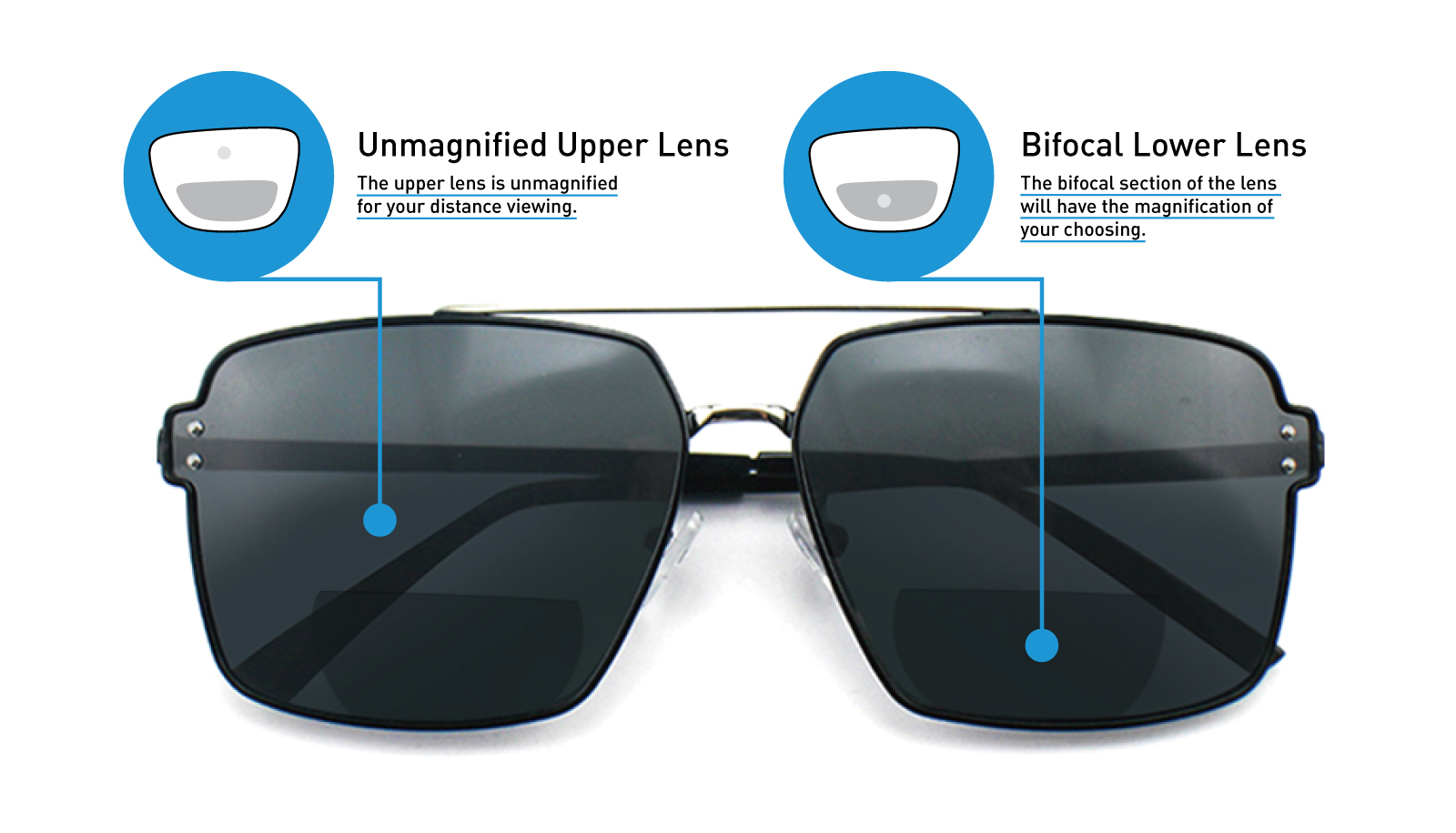
The photochromic bifocal lenses go darken as sunglass when you go outdoors. They protect your eyes from bright light and UV rays, allowing you to read and view clearly at the same time. Lenses will become clear again indoors within only a couple of minutes. You can easily enjoying indoor activities without taking them off.
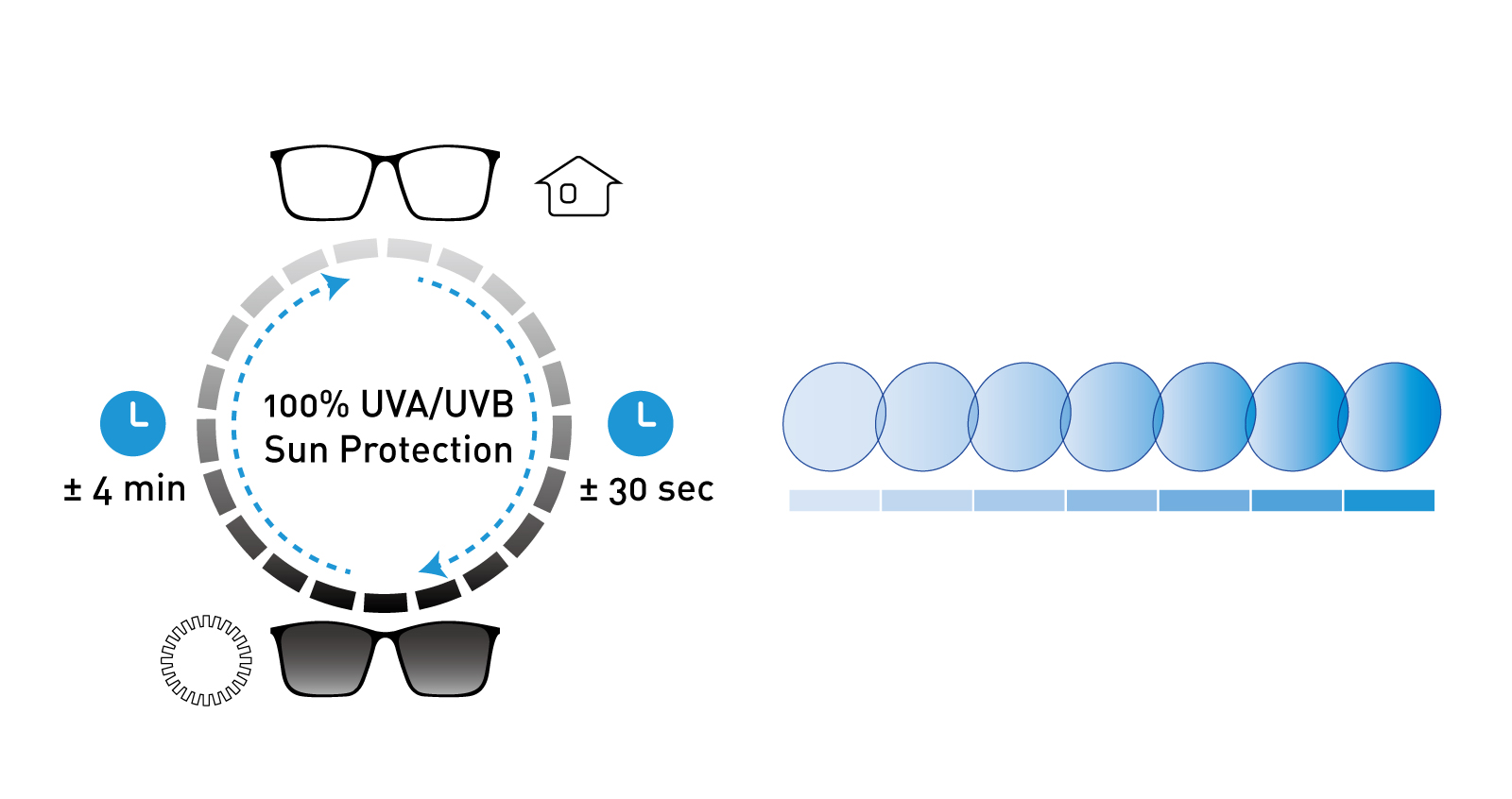
Available Types of Photochromic Bifocal Lenses
As you have known bifocals have two prescriptions in one piece of lens, the near prescription portion is called “Segment”. There are three types of bifocals based on shape of the segment.
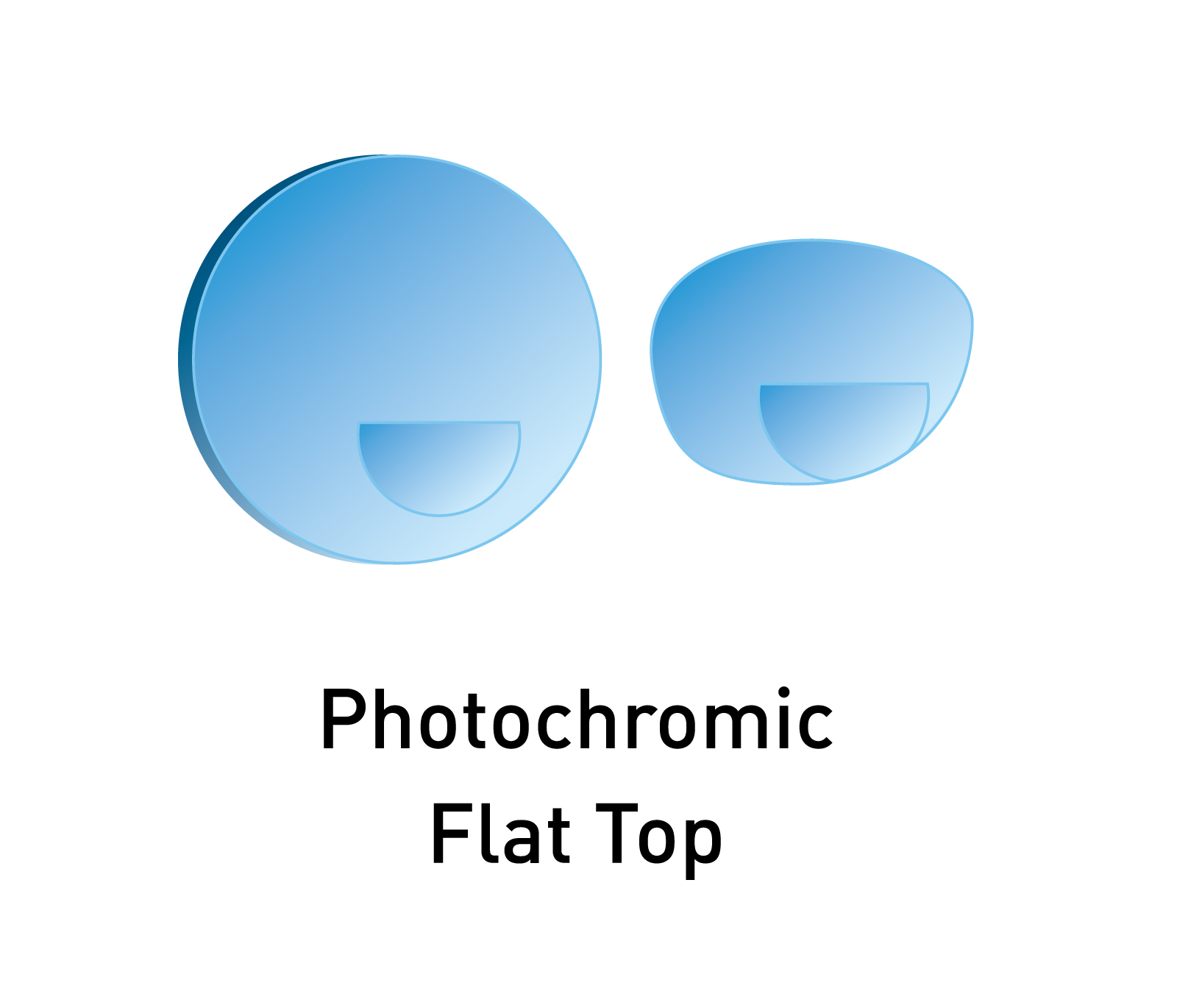
Photochromic flat-top bifocal lens is also called as photochromic D-seg or straight-top. it has a visible “line” and it’s biggest advantage is it offers two very distinct powers. The line is obvious because the change in powers is immediate. With the advantage, it gives you the widest reading area without having to look too far down the lens.
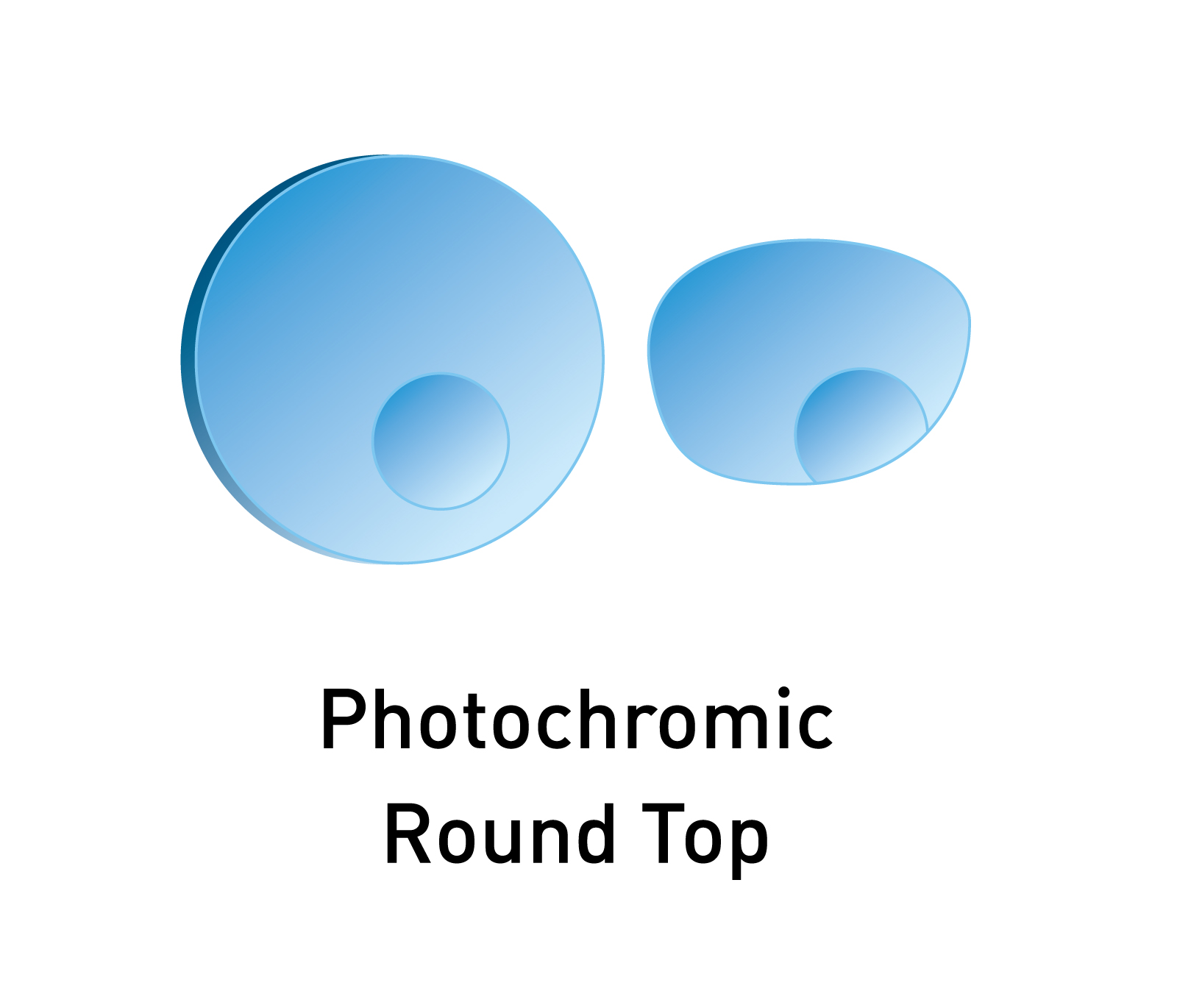
The line in photochromic round top is not as obvious as that in the photochromic flat top. When worn, it tends to be much less noticeable. It functions the same as the photochromic flat top, but the patient must look farther down in the lens to get the same width due to the shape of the lens.
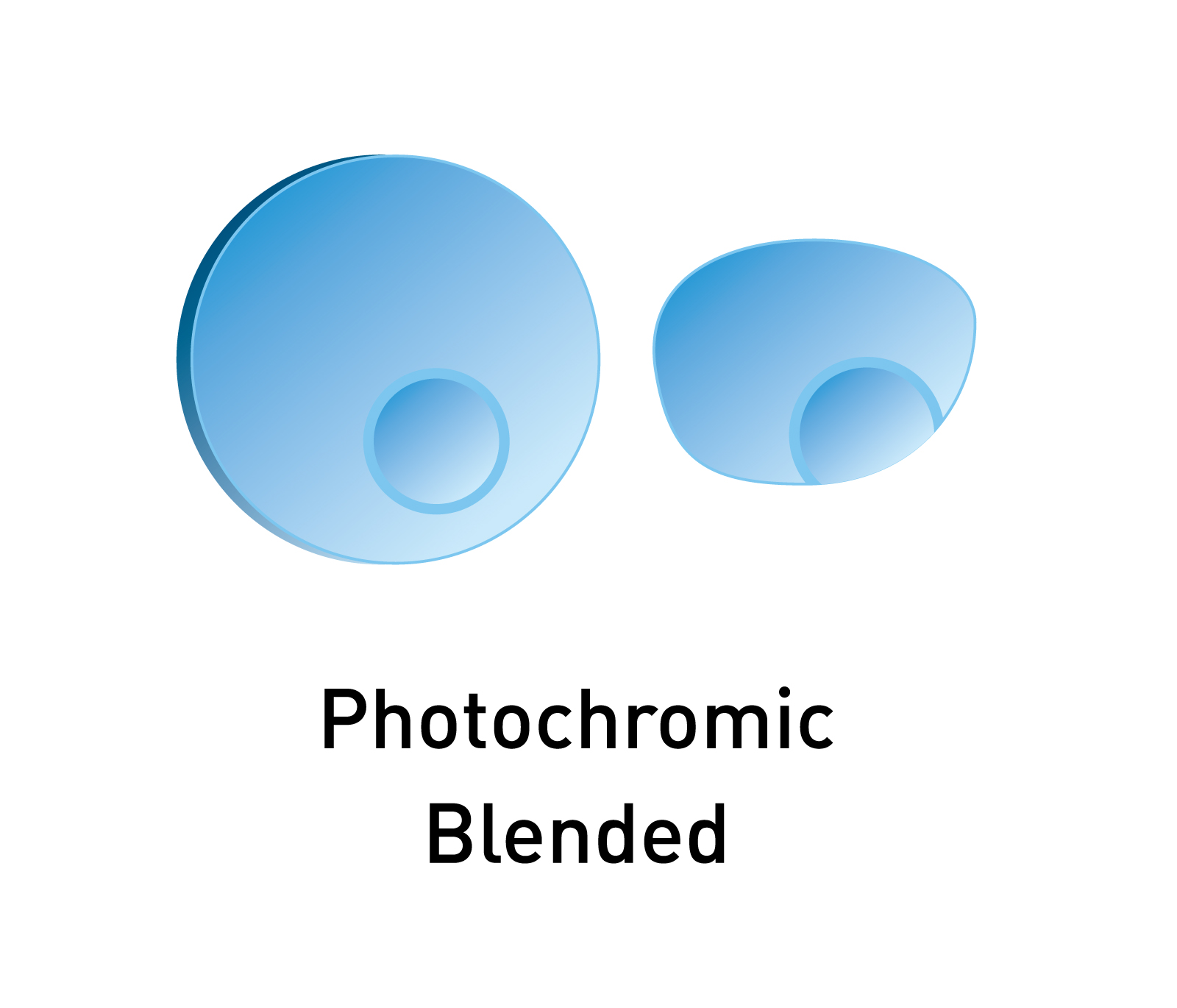
Photochromic blended is a round top design where the lines have been made less visible by blending the different zones between the two powers. The advantage is cosmetic but it does create some visual distortions.
Product detail pictures:
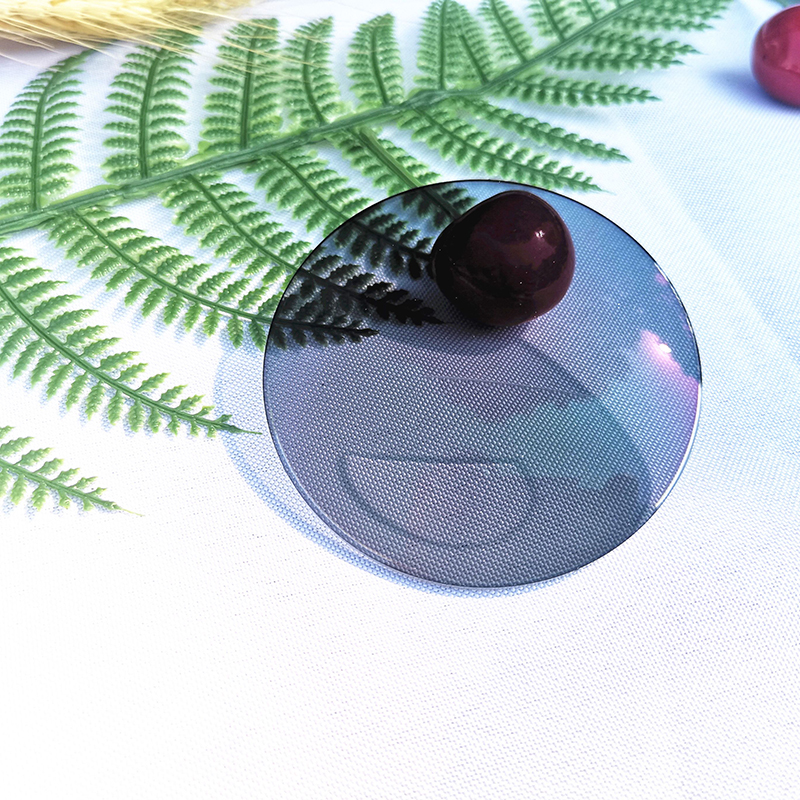
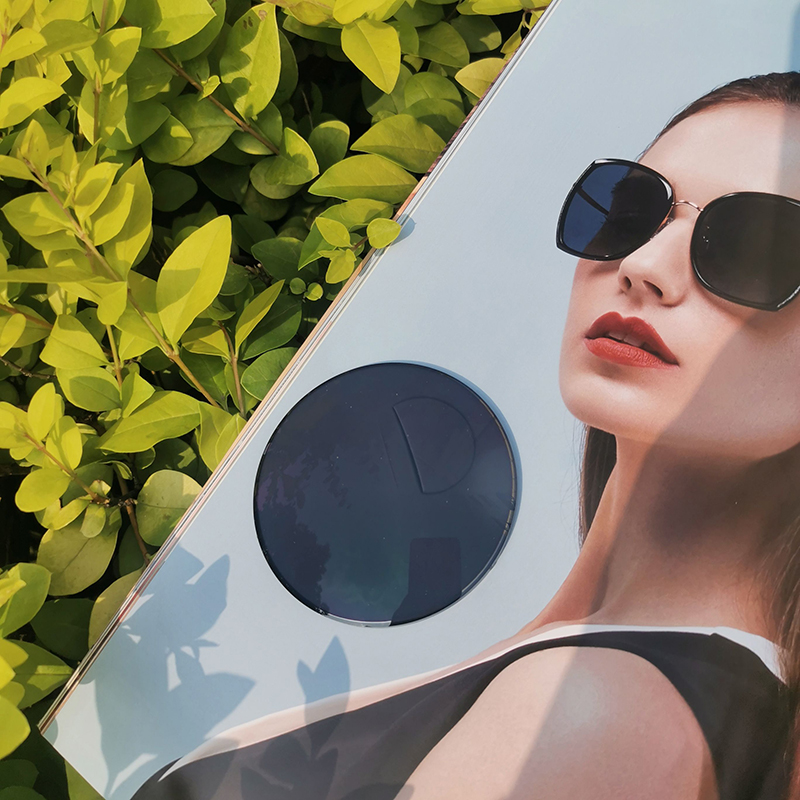
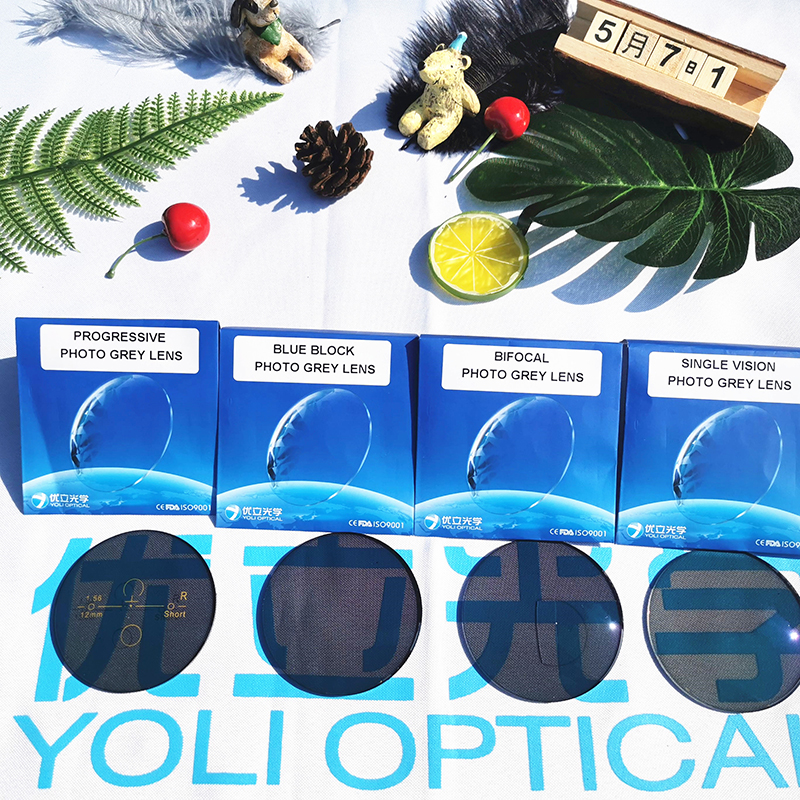
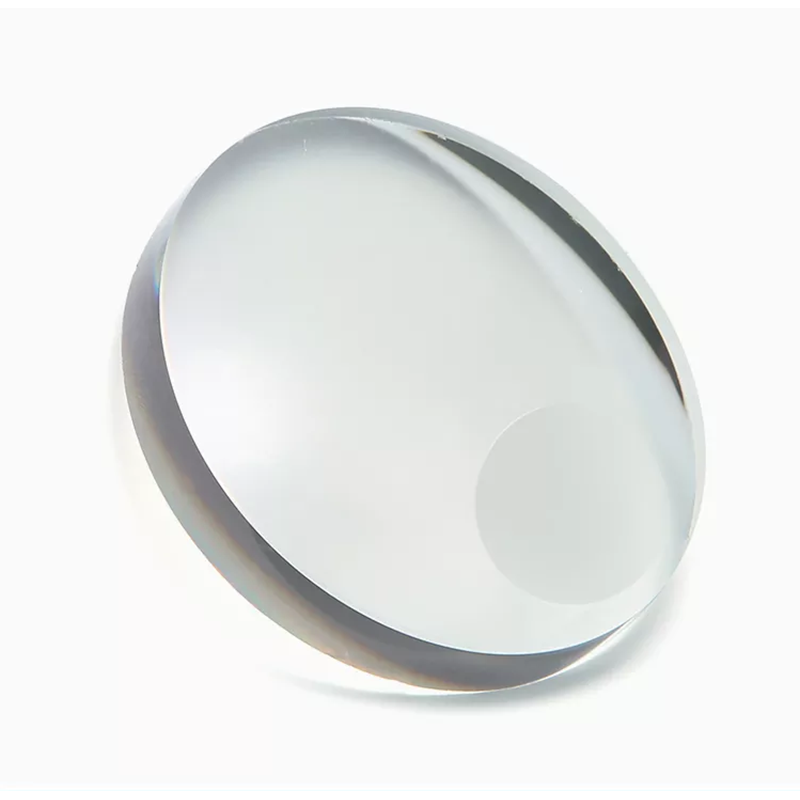
Related Product Guide:
We now have a specialist, efficiency workforce to deliver excellent service for our purchaser. We always follow the tenet of customer-oriented, details-focused for China 1.56 Photochromic Blue Cut Lens Companies – Photochromic Bifocal Lens – YOLI , The product will supply to all over the world, such as: Hungary, Ukraine, Moldova, "Create Values,Serving Customer!" is the aim we pursue. We sincerely hope that all customers will establish long term and mutually beneficial cooperation with us.If you wish to get more details about our company, You should contact with us now!
The company account manager has a wealth of industry knowledge and experience, he could provide appropriate program according our needs and speak English fluently.

